The PMBOK Guide 8 is available now. Understand why this is the most practical, inclusive and value-driven edition ever published by the PMI — marking a new era for project managers seeking real results. Below are the highlights that will be explored:
The PMBOK Guide 8 marks a turning point in the history of project management.
After decades of evolution (from the first edition in 1996 to the seventh in 2021), the Project Management Institute (PMI) releases a version that is more practical, evidence-based and value-focused.
This edition was revised based on extensive global contribution and public consultation, reflecting the maturation of project management as a strategic discipline and recognizing that projects exist to create value, not just to complete deliverables.
But after all, what changes in practice for project managers?
What makes the PMBOK Guide 8 different from previous editions
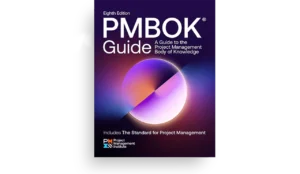
If the 7th edition introduced a conceptual shift by replacing knowledge areas with performance domains, the 8th edition arrives to integrate the best of both worlds:
the principles-based perspective and the process-oriented structure. It also provides a deeper integration of agile methodologies and an evolved approach to project governance.
The guide returns with the traditional Process Groups — now called Focus Areas — while retaining the flexibility and value orientation of the previous version.
There are approximately 40 revised processes, organized in a more intuitive and practical way, with emphasis on measurable results.
In addition, PMBOK 8 reduces its core principles from 12 to 6 — clearer, more modern and applicable to any context.
Topics such as artificial intelligence, sustainability and adaptive governance appear prominently, reflecting market and organizational transformations.
The new system for value delivery
One of the most remarkable chapters of the PMBOK Guide 8 is the “A System for Value Delivery”, which repositions the purpose of project management: it is no longer just about delivering scope, but about creating sustainable and measurable value.
The guide emphasizes the interconnection between organizational strategy, portfolio, program and project, showing how each level contributes to the overall outcome.
This means that every project stage is carefully assessed from the perspective of the value it can bring to the business, connecting execution decisions to strategic objectives.
In other words: the success of a project is measured by the impact it generates, not just by the delivery completed.
With this focus, management practices are expected to become more strategic and aligned with organizational objectives. The value-based approach encourages project managers to constantly evaluate how their actions contribute to the project’s success and, consequently, to the company’s success. This perspective not only improves final outcomes but also fosters a culture of efficiency and effectiveness within project teams.
Thus, PMBOK 8 is not just an update; it is an invitation to smarter project management oriented toward real results.
The six principles of the PMBOK Guide 8
These principles express the spirit of PMBOK 8: lead with purpose, deliver value and learn continuously.
PMBOK 8 organizes its foundations into six principles that underpin all practices and decisions in projects and define the expected behavior and mindset of project professionals:
Let’s understand each of these new principles:
1. Adopt a holistic view
Adopt a holistic view. This principle invites the project manager to consider the project as part of a larger ecosystem. This includes understanding the organizational context, the market, social and environmental implications, and the interdependencies among project areas.
In practice: It means looking beyond the technical scope. A project manager should assess how decisions affect different stakeholders, departments and the organization’s strategic positioning. The project is not an end in itself, but a means for organizational transformation and broad value delivery.
Understand the whole system and its interdependencies
2. Focus on value
More than delivering scope within time and budget, the project manager must ensure the project generates perceived value for stakeholders. This requires continuous alignment with strategic objectives and what is considered valuable for the end customer.
In practice: This may involve frequent priority reviews, adapting deliverables according to feedback, and making decisions based on impact, not just effort. Benefits management becomes a central element of the PM’s role.
Measure success by impact perceived by stakeholders, not only by deliveries. Make decisions based on real impact delivered.
3. Embed quality
Embed quality into processes and deliverables. Quality should not be a final step or an after-the-fact check. It must be present throughout all project phases, from planning to delivery.
In practice: This means applying quality standards from project conception, ensuring robust processes, encouraging continuous improvement and creating final products that meet (or exceed) expectations. Preventing defects becomes more important than fixing them later.
Build quality from planning onward, preventing failures and waste. Quality should be built in, not inspected in at the end.
4. Be an accountable leader
Be an accountable leader. This principle emphasizes the importance of ethical, transparent and responsible leadership. The project manager is not only an executor but a role model and reference for the team.
In practice: Leading responsibly involves taking ownership of project outcomes (positive or negative), fostering team trust, making value-aligned decisions and being transparent with stakeholders. An accountable leader promotes engagement and psychological safety.
Act with responsibility, ethics and transparency, inspiring teams and stakeholders. Influence with ethics, empathy and purpose.
5. Sustainability
Integrate sustainability across all project areas. Sustainability is now a formal principle of the PMBOK. It should be considered in all project decisions — from resource use to environmental, social and economic impact.
In practice: Project managers should consider actions such as minimizing waste, choosing sustainable suppliers, assessing long-term impacts and aligning with the Sustainable Development Goals (SDGs). Sustainable projects are more valued and viable in the long run.
Incorporate sustainable practices and think about the project’s full lifecycle. Consider long-term and collective impact.
6. Build an empowered culture
Build an empowered culture. An empowered culture allows people to have a voice, make decisions and collaborate freely. The project environment should be safe, inclusive and conducive to innovation.
In practice: This includes promoting team autonomy, valuing diversity, encouraging continuous learning and reducing micromanagement. An empowered team is more productive, creative and committed to results.
Create a collaborative, safe and innovative culture where people have voice and autonomy, and teams are autonomous, collaborative and results-oriented.
These principles do not replace processes — they guide them.
PMBOK 8 reinforces that leadership, context and purpose should direct the choice of practices and tools.
The seven performance domains
PMBOK 8 consolidates seven performance domains, equivalent to the former knowledge areas but focused on outcomes and perceived value:
Governance
The Governance domain ensures transparency and alignment of projects with organizational strategic objectives and compliance standards. Expected outcomes include greater transparency, evidence-based decision making (decision structure and accountability) and adherence to corporate best practices.
Scope
Scope management aims to ensure project requirements are clearly defined and controlled. Key expected outcomes are reduced unplanned changes, clearer deliverables and alignment with stakeholder needs.
Schedule
The Schedule domain reinforces the importance of effective planning and control of project time and the balance between cadence, time and predictability. Expected outcomes include realistic timelines, better dependency management and achievement of planned milestones.
Finance
Project financial management involves cost control, budgeting and economic feasibility analysis (cost management, investments and benefits). Expected outcomes are optimized financial resources, reduced waste and predictability in expenditures.
Stakeholders
Effective stakeholder engagement is essential for project success. This domain seeks to ensure clear communication, continuous engagement and expectation alignment. Expected outcomes include greater project acceptance and active stakeholder support.
Resources
Resource management covers both human and material resources necessary for project execution (people, infrastructure and competencies). Expected outcomes include efficient allocation, team development and maximized productivity.
Risk
The Risk domain emphasizes identification, analysis and mitigation of uncertainties that may impact the project. Expected outcomes include increased predictability, rapid response to threats and maximization of opportunities.
These domains retain their key concepts and expected outcomes, but with adjustments that reflect the current context: projects are more dynamic, technological and aligned with organizational strategy.
Each domain is described with objectives, practices and interactions, promoting an integrated view of management.
PMBOK 8 makes clear that value emerges when these domains connect in a balanced way.
The return of processes — now with purpose
One of the most significant changes in the PMBOK Guide 8 is the reintroduction of detailed processes, structured with their inputs, tools, techniques and outputs.
However, unlike before, they are now value-oriented, not merely control-oriented.
The guide emphasizes that processes are means to achieve results, not an end in themselves.
This approach facilitates adaptation to different contexts and reinforces the importance of predictability without sacrificing agility.
Processes structured by performance domains and focus areas
The PMBOK Guide 8 maintains the five process groups, now renamed as focus areas: Initiating, Planning, Executing, Monitoring & Controlling, and Closing.
At the same time, the performance domains introduced in the 7th edition continue, now revised and strengthened.
This combination allows practitioners to use the best of both worlds: a structured method and a systemic view of value delivery with processes and their expected outcomes.
Tailoring: intelligent customization
remains a central concept, now reinforced with practical guidance.
The PMBOK Guide 8 teaches how to adapt practices, tools and techniques to the specific context of each project, taking into account size, complexity, culture and organizational maturity.
“In the PMBOK Guide 8, success is not about following the method to the letter, but about applying what makes sense for the project’s purpose.”
This approach encourages project managers to think critically, choose appropriate processes and make more conscious, value-driven decisions.
The new role of the project manager
The project professional is now seen as a value strategist, not just a schedule executor. He or she becomes an integrator of domains, a culture enabler and a bridge between strategy and execution.
Competencies such as systems thinking, empathy, adaptive leadership and the use of AI gain prominence.
The modern professional needs to understand the business, stakeholders and purpose — not just the schedule.
Rather than controlling people, the project manager should inspire teams, translate strategy into action and promote evidence-based decisions.
They are the link between executive leadership and practical delivery — a role increasingly critical in times of digital transformation and artificial intelligence.
Conclusion: A new mindset for a new era
The PMBOK Guide 8 is not merely a technical update; it is a mindset shift. It represents the ideal balance between structure and flexibility, science and purpose, and process and value.
It preserves the PMI’s core — organization, consistency and best practices — while extending its scope to incorporate sustainability, artificial intelligence and strategic impact, uniting traditional management objectivity with agile flexibility and modern leadership purpose.
“Managing projects is no longer about fulfilling scope; it is about generating continuous value.”
This is the central message of the new edition and the invitation for every project manager to become an agent of transformation.
The final version of the PMBOK Guide 8 will set a new standard for the profession.
Those who understand its changes now will be ahead in the transformation of project management.
Call to Action:
References
Project Management Institute (PMI). A Guide to the Project Management Body of Knowledge (PMBOK® Guide) – Eighth Edition. Newtown Square, Pennsylvania, USA: Project Management Institute, 2025. PMBOK Guide 8: The New Era of Value-Based Project Management. Available at: https://projectmanagement.com.br/pmbok-guide-8/
Disclaimer
This article is an independent educational interpretation of the PMBOK® Guide – Eighth Edition, developed for informational purposes by ProjectManagement.com.br. It does not reproduce or redistribute proprietary PMI content. All trademarks, including PMI, PMBOK, and Project Management Institute, are the property of the Project Management Institute, Inc. For access to the complete and official content, purchase the guide from Amazon or download it for free at https://www.pmi.org/standards/pmbok if you are a PMI member.

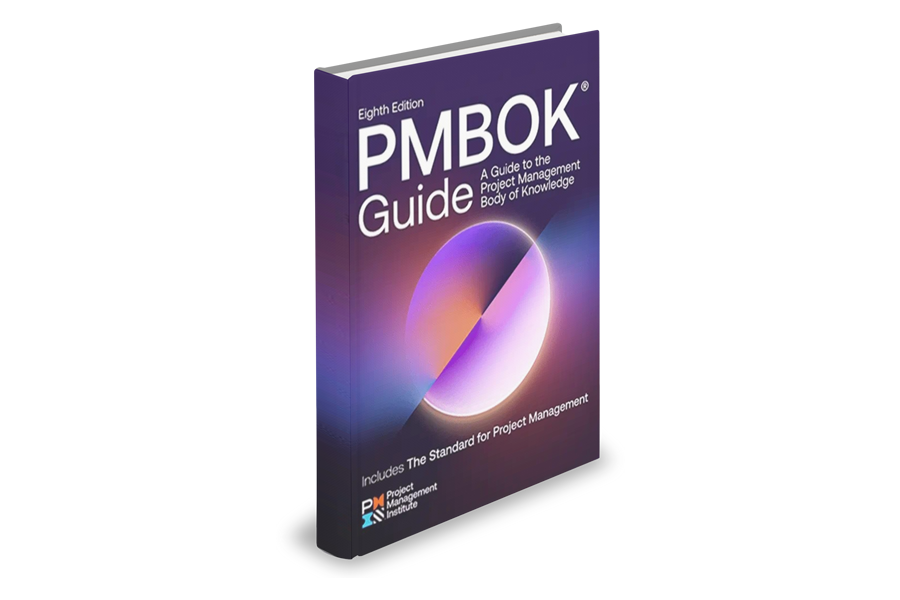
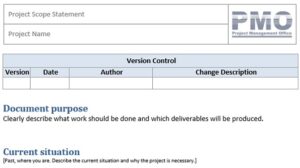
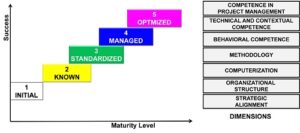
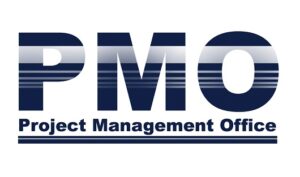
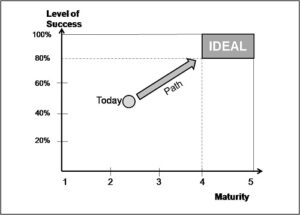
12 Responses